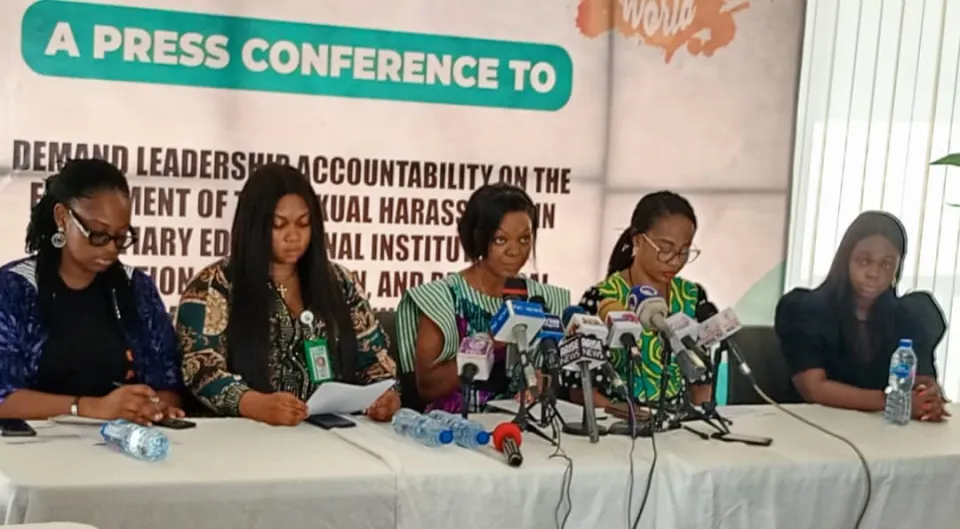
A Civil Society Organisation, Gender Mobile Initiative (GMI) and other gender activists have called for Presidential assent to the Sexual Harassment Prohibition in Tertiary Institutions Bill to check prevalence of the scourge.
Lead Director of the initiative, Omowumi Ogunrotimi at a press briefing in Abuja said there was an urgent need for a comprehensive legal framework to provide statutory backing to criminalise sexual harassment in higher education institutions.
According to Ogunrotimi, “Alarming statistics reveal that 70% of female graduates from Nigerian tertiary institutions have been subjected to sexual harassment an epidemic proportion indicative of systemic and structural deficits. These figures represent the real life experiences of countless young women whose educational journey has been marred by the insidious spectre of harassment”.
“The recent student protest and the brave outcry against the Dean of the Faculty of Law, University of Calabar, whose history is marred by allegations of sexual harassment and rape, underscores the urgency for systemic change and serves as a wake-up call, compelling us to confront the gravity of the issue and demand immediate action to protect the rights and well-being of students across the nation. The combined weight of the World Bank survey and the incidents at the University of Calabar and other institutions paints agrim picture of the widespread prevalence of sexual harassment in our fine institutions. It is not an isolated problem but rather an epidemic that jeopardizes the integrity of the education system and the well-being of students especially female students”.
“The epidemic proportion of this issue serves as a poignant reminder that we must address the root causes and implement robust measures to dismantle the culture of sexual harassment that pervades our institutions of higher learning” she stated.
Ms Ogunrotimi explained that the Sexual Harassment Prohibition in Tertiary Education Institutions Bill provides a comprehensive legislation crafted to address the nuances of sexual harassment, and a clear definition of offenses, establishing stringent penalties for perpetrators, and outlining mechanisms for the prevention and redress of sexual harassment.
The Inspector General of Police (IGP) Kayode Egbetokun, represented by the Deputy Commissioner of Police, Gender , Force Headquarters, Rita Oki said the force had made it mandatory for all universities to have a gender case section.
She said the Police was concerned about the menace and remained ready to cooperate with other partners to address the menance.
Acting Director, Centre for Gender Security Studies, and also a senior lecturer, Faculty of Law, University of Abuja, Dr Gloria Ibikunle said Sex for Grades in tertiary institutions was undermining the integrity of academic degrees.
The Federal Ministry of Education had endorsed a model sexual harassment prohibition policy co-designed and validated by the Independent Corrupt Practices Commission, ICPC, Gender Mobile Initiative, and higher education institutions.




